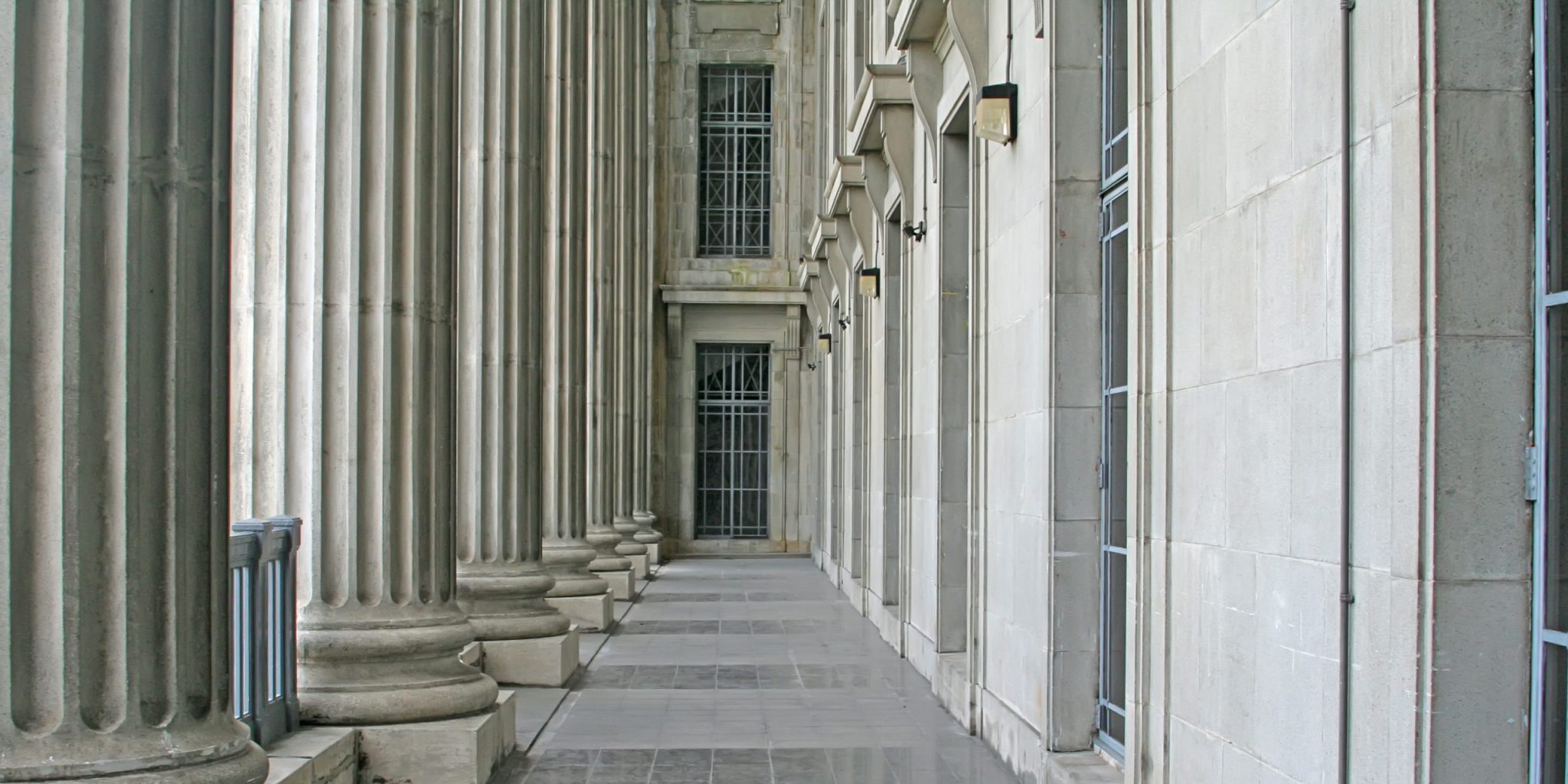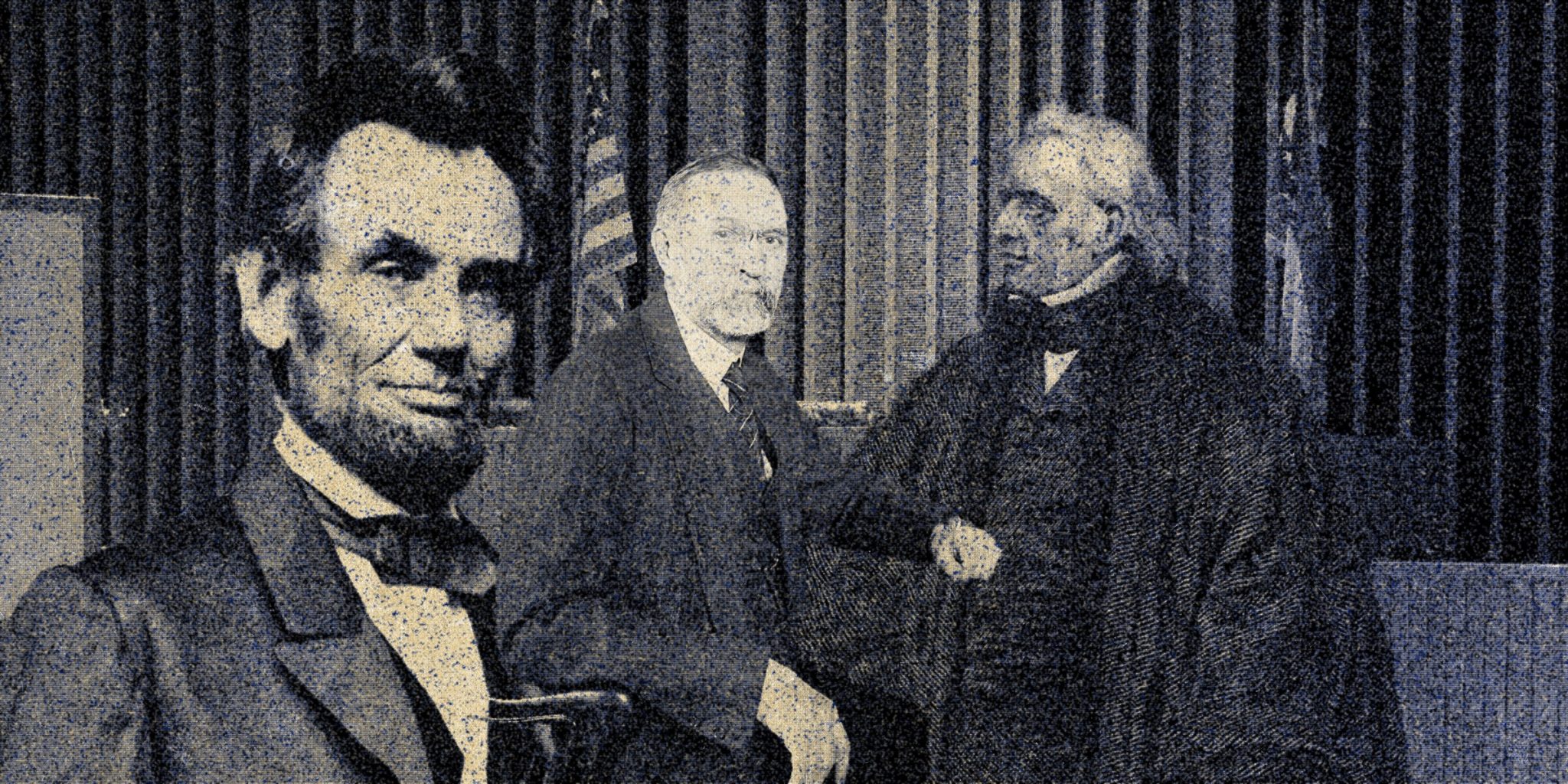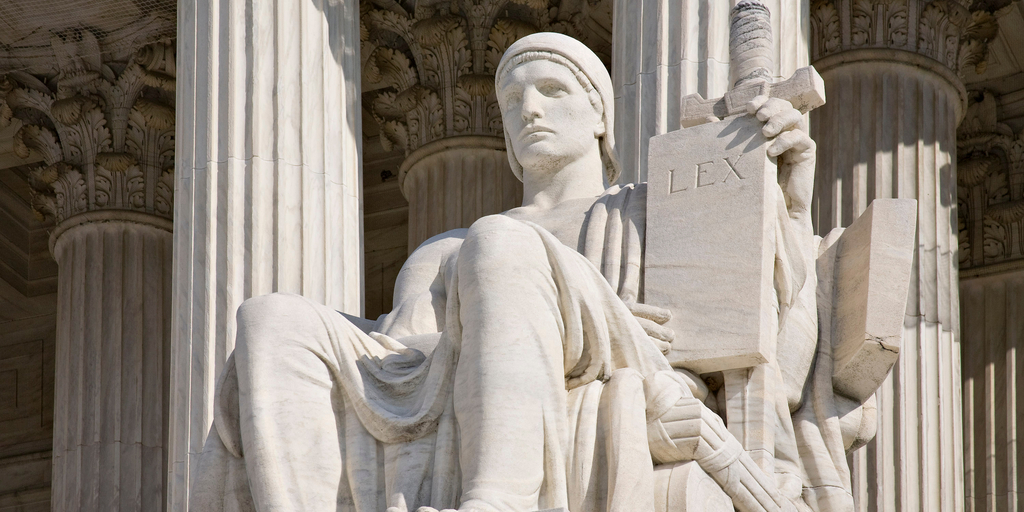
In 2021, JWI begins a collaborative partnership with the Liberty Fund’s online journal, Law & Liberty. Led by its Director, Richard Reinsch, Law & Liberty has become one of the premier journals on the Right for writing on jurisprudence, politics, and the culture. Prof. Hadley Arkes opened our first symposium in February 2021 with “Letter to a Noble Lawyer.“ Prof. Justin Dyer, JWI Affiliated Scholar and political scientist at University of Missouri, responds below.
In his recent “Letter to a Noble Lawyer,” Hadley Arkes notes that his friend’s difficulty with natural-law jurisprudence stems in part from a worry about the negative consequences of “giving free rein to life tenured Justices to apply their own understanding of natural law.” That line called to mind an anonymous review of a journal submission I once received warning that if judges adopt a natural-law approach to legal interpretation then “it will be off to the races.” The concern here is a valid one: that judges—especially independent, life-tenured federal judges—ought not to impose their own policy preferences under the guise of legal interpretation. Far better for the judge to subordinate his will to the demands of the law. Textualism and originalism each offer to tether judicial discretion to something concrete and deliver us from rule by a bevy of Platonic Guardians.
And yet, even the argument for judicial restraint rests, at bottom, on a normative account of judicial authority. When we say that a judge ought to remain faithful to the original meaning of the constitutional or statutory text, what accounts for this ought? In Natural Law for Lawyers, J. Budziszewski recounts a seminar discussion at Calvin College in which the participants pushed Antonin Scalia on just this question. “If asked why a judge should keep his oath to uphold the law,” Budziszewski writes, “[Justice Scalia] willingly conceded that the basis for this duty is the natural law precept that promises should be kept.” Beyond grounding the judicial oath of office, however, Scalia throughout his career adamantly denied any role for his own view of natural law in judicial interpretation. In a similar way, many of our noble friends in the legal profession continue to believe in the reality of a natural moral law even as they insist that the natural law is irrelevant to the judicial office and morally dangerous in legal interpretation.
We might recast the argument in this way: the Constitution creates political institutions that promote the common good and secure the conditions for individual human flourishing. Part of this design is that legislators, rather than judges, will deliberate about the policies most likely to secure the common good. When judges substitute their own will for that of the legislature, they undermine this constitutional design and subvert the common good. It is better to be ruled by the first 2,000 names in the phone book than by an Ivy League faculty, to paraphrase William F. Buckley, and it is likewise better to be ruled by the original meaning of the Constitution than by the constitutional theories of unelected judges with Ivy League degrees. Against this background, the turn to textualism and originalism was not so much about moral relativism as it was about securing moral goods by wresting interpretive discretion away from judges.
Granting that noble aim, it nonetheless remains inevitable that judges, in the act of rendering judgment in a concrete case, will and must go beyond the text of the Constitution to something that informs their understanding of that text. Herein lies the problem: are not judges then unbound, untethered to the Constitution? The solution many of our friends give to this problem is to turn to rigorous historical studies to excavate the original meaning of key phrases in the Constitution or to Founding-era dictionaries to determine the text’s original public meaning. And yet this also involves a move beyond the Constitution (both in terms of historical methodologies and in the interpretive theory put forward to justify being bound by historical understandings) as well as an acknowledgment that the adoption of originalist methodology does not yield judicial consensus on important matters of the law.
This latter point was highlighted, quite dramatically, by Neil Gorsuch’s purportedly textualist opinion in the Bostock case over the summer and the dissents tendered by his textualist colleagues. If different judges openly committed to textualist methodology may arrive at such divergent interpretations of the meaning of the word “sex” in Title VII of the Civil Rights Act, then what exactly is the promise of textualism? Not consensus, and not the limiting of judicial discretion. For a judge inclined to reach a certain result, there are law professors working to churn out law review articles supporting any number of conclusions on disputed legal questions, and this is as true of textualism and originalism as any other approach.
As Arkes notes, though, this “presence of disagreement does nothing to dislodge the conviction that, even in the presence of disagreement, Originalism has real truths to discern.” This is as it should be, since from the presence of disagreement we may infer nothing of significance about the merits of any particular argument; certainly, we may not infer that an argument is wrong simply because someone registers their disagreement. “Who could ever have supposed that by accepting a moral code we should be delivered from all questions of casuistry?” C.S. Lewis asked in a posthumously published essay. “Obviously, it is moral codes that create questions of casuistry,” he observed, “just as the rules of chess create chess problems.” Problems of interpretation will always be with us, but the old saw about natural law—that if there is a natural law, then people would not disagree about moral questions—must be put to rest.
The place to begin considering natural-law jurisprudence is not with the fact of moral disagreement, but with the moral basis of judicial authority. Why does the law command our allegiance in the first place? And what exactly is the law to which the judge must be faithful? In the same place where Budziszewski recounts Scalia’s concession that the natural law ultimately grounded his obligation to keep the judicial oath, he noted also that the oath (28 U.S.C., Sec. 453) specifically is to “administer justice without respect to persons, and do equal right to the poor and to the rich” and “to faithfully and impartially discharge and perform all the duties incumbent upon” the judicial office “under the Constitution and laws of the United States.” “The meaning,” Budziszewski comments, “could hardly be more clear. Enacted law does not regulate the meaning of justice; rather justice regulates the meaning of enacted law. So the natural law tradition has always held.”
The modest claim of natural lawyers in these disputes over legal and constitutional interpretation has been that that we cannot fully understand or account for the law, or identify its deficiencies, absent recourse to moral truths accessible to reason. There can never be a complete analytic separation between law and morality, because governing by law is a moral enterprise. Part of that moral enterprise involves constructing political institutions that identify the proper authority to make rules for the common good, and then exercising that authority with the consent of the governed. For just these reasons, however, the positive law will often deviate from the perfect justice we might expect if men were angels even as it aims at a kind of justice that is possible in a regime where imperfect men govern imperfect men. The alternative is to allow power without authority to impose rules without consent, a forceful imposition of will that stands opposed to the rule of law.
The best case for textualism and originalism in statutory and constitutional interpretation is that each correctly identifies the proper authority in our system to make rules for the common good, and each offers the best chance of exercising that authority consistent with a respect for the consent of the governed. In this way, we avoid substituting will for reason, might for right. Granting the force of the argument, still it remains that interpretation will at times hinge on what Hamilton described as “a mere rule of construction, not derived from any positive law, but from the nature and reason of the thing.” At other times, interpretation will hinge on an unavoidable, even when implicit, judgment about the nature of moral reality.
John Quincy Adams made this point during oral argument at the Supreme Court in the case of the Spanish slave ship named La Amistad(ironically meaning “friendship”). After the ship set sail from Cuba, the enslaved Africans on board killed the Captain and most of the crew and sailed into the harbor in New York. In that case, Secretary of State John Forsyth claimed that enslaved Africans were property under a treaty obligation that required property recovered from pirates to be returned, which prompted Adams to ask: what is the property? And who are the pirates? The government’s case hinged on saying that the Africans on board were at once morally responsible human beings capable of the crime of piracy, and at the same time chattel to be returned as property. In response, Adams recalled the nation of beings in Gulliver’s Travels who would discretely say of a lie or falsehood that someone had “said the thing that is not.” Of the Secretary of State’s contention that these human beings were by nature property to be returned as such under this treaty, Adams contended that Forsyth had “said the thing that is not.”
In a similar, though often less dramatic way, legal questions depend implicitly on moral premises and claims about reality, of things that are and are not—whether about property or personhood, rules of construction and canons of reason, or even about prudential compromises and the imperfect justice of positive law that nonetheless claims our allegiance. Natural-law jurisprudence is not a panacea that settles every legal or constitutional dispute, and the same, of course, can be said of every alternative. Natural law, however, does provide a framework from within which we can approach every dispute. The question is rather not about consensus or disagreement but about the nature of law and the moral premises undergirding a regime marked by the rule of law and the consent of the governed. To that the natural law has something to say, for we cannot give an account of the authority of law or even a justification of a particular approach to legal and constitutional interpretation without relying on the natural law.




